Different Types of Skin and the Natural Skin Care Recipes that Work Best for Them
Various factors such as age, genetics, and exposure to the sun play an important role in the health of your skin. If you suffer from dry or oily skin, don’t fret! There are plenty of natural skin care recipes you can use to pamper your type of skin and help you keep it healthy, hydrated, and radiant. Today we’ll be talking about the different types of skin and the natural skin care recipes that work best for them. Let’s get started!
The Ingredients
There are a lot of natural ingredients you can use to make a variety of skincare products. The most important thing to remember when it comes to moisturizers, face masks, hair conditioners, and other natural skin care recipes is that what you put on your body needs to be good for your body. For example, if your face mask is going to be made with lemon juice (as many are), be sure you don't have sensitive skin or you might end up with a chemical burn! If you're looking into making natural homemade cosmetics recipes, always read about how a particular ingredient will affect your skin before deciding whether or not it's right for your project.
Moisturizers
If you have dry skin, adding a moisturizer to your daily routine is a must. Just be sure to find one that doesn’t contain parabens or sulfates—the harsh chemicals in many commercial beauty products can irritate dry skin. Consider incorporating coconut oil into your daily routine. Coconut oil moisturizes and softens skin without irritating it, unlike other oils like olive oil or jojoba oil, which are great options too! If you live in a cold climate, especially one with harsh winter winds, you might also want to add an exfoliant to your routine. Exfoliating once a week helps clear dead skin cells from your face so they don’t get trapped by makeup (making you break out) or cause dry patches on your skin.
Face masks
Homemade face masks for glowing skin are a very popular choice for women who want to revitalize their complexions. In addition to removing dirt, grime, and excess oil from pores, some masks have ingredients that can help even out skin tone or treat minor blemishes. Masks made with aloe vera or fruit extracts can be especially soothing. Homemade products don't contain harsh chemicals you might find in store-bought versions. After you've made your mask, leave it on as long as possible before rinsing off to take full advantage of these natural skincare ingredients. Experiment with different mixtures until you find one that works best for your type of skin.
Body scrubs
A body scrub is an excellent way to increase circulation, gently remove dead skin cells and soften your skin. If you want to make your own natural body scrub, mix equal parts salt, sugar, or brown sugar with olive oil. Apply it to wet skin in circular motions. Allow yourself to sit in a warm bath or shower afterward. This increases blood flow, even more, leaving you soft and smooth.
Face scrubs
The best way to combat dull, dry skin? A daily face scrub. Not only does it help rid your skin of dirt, oil, makeup buildup, and more; but it also promotes cell turnover. Daily use can lead to clearer pores, softer skin, and a healthier glow! If you want to choose one natural product for natural skin care recipes for all types of skin that will make a noticeable difference in your appearance in as little as two weeks or less, look no further than a natural face scrub. They can do everything from removing dirt to leaving your complexion smooth. If you’re looking to kick-start your efforts at improving your natural skin care recipes or creating some all-natural products yourself (instead of purchasing them), start with facial scrubs!
Hair masks
As with skin, hair masks are a great way to moisturize your hair. Unlike face masks, which contain cleansing ingredients meant to get rid of excess oil and dirt, most hair masks aim to do just what their name implies: provide moisture. If you’re trying to nourish your locks with homemade products, try mixing in honey or egg yolks for the best results. Plus, avocado makes a great all-natural conditioner—just mash up half an avocado (no need to remove the skin), mix it in a blender with some milk or yogurt until smooth (then strain out any pieces you don’t want) and apply it to your hair as often as necessary!
Lip balms
With so many lip balms on the market, each claiming to be all-natural and promising to cure your sore lips, you’d think it would be difficult to choose one. And in a lot of ways, you’re right—you can read all kinds of things about which ingredients are natural or not, about what will heal chapped lips, and what will just temporarily feel better. When it comes down to it, though, all lip balms have one job: To protect your lips from harmful outside elements like cold air or sun. So when choosing a balm based on natural ingredients alone—be sure to focus more on finding something with an SPF rating higher than 15.
Dandruff treatments
Using natural ingredients to combat dandruff can be tricky. If you’re prone to dandruff, or if it flares up when you switch seasons, try an exfoliating skin-care mask once a week. Mix together half a teaspoon of lemon juice with one egg yolk. Apply it in sections from your forehead down to your shoulders, leave it on for 20 minutes, then rinse well. This will slough off dead skin cells and open up pores, preventing clogged follicles from making your scalp worse.
Foot soaks
If you’re prone to dry, itchy skin or cracks in your heels, a foot soak can help relieve them. Just add 1-2 cups of Epsom salts to warm water and soak your feet for 10-15 minutes. When you get out, gently brush away dead skin with a pumice stone. The salt is also believed to be effective against cellulite by breaking down fat cells and stimulating blood flow through tight muscles around the hips and thighs. To reap these benefits as well as soften skin, try an oatmeal foot scrub: Add 1⁄2 cup oatmeal powder mixed with 2 tbsp grapeseed oil or coconut oil to 1 cup warm water; mix until combined; massage onto clean feet using circular motions (for best results use after bathing); rinse well.
Peppermint foot lotion
Peppermint oil is used in aromatherapy to boost mental alertness, relieve headaches, reduce tension and promote a feeling of euphoria. In addition to being an anti-inflammatory, peppermint is also anti-bacterial—making it perfect for natural foot lotion. To make your own peppermint foot lotion, simply add a few drops of peppermint oil to a basic lotion recipe (1/2 cup shea butter mixed with 2 tbsp olive oil). Massage into feet daily after bathing or showering. For best results, store in an airtight container in a cool area away from direct sunlight.



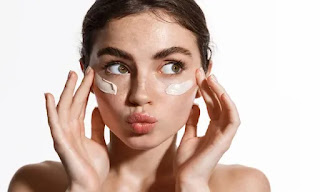
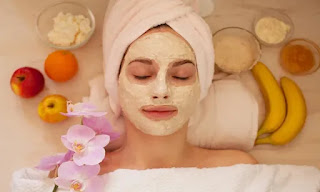



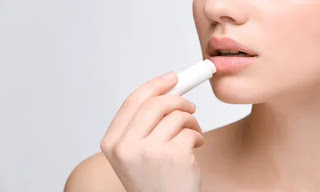
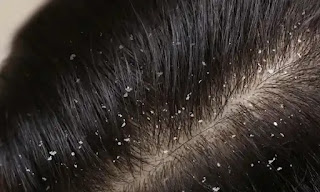
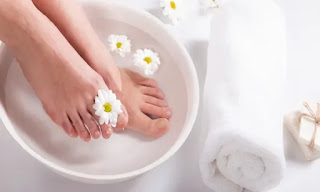
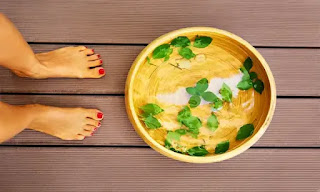
Comments
Post a Comment